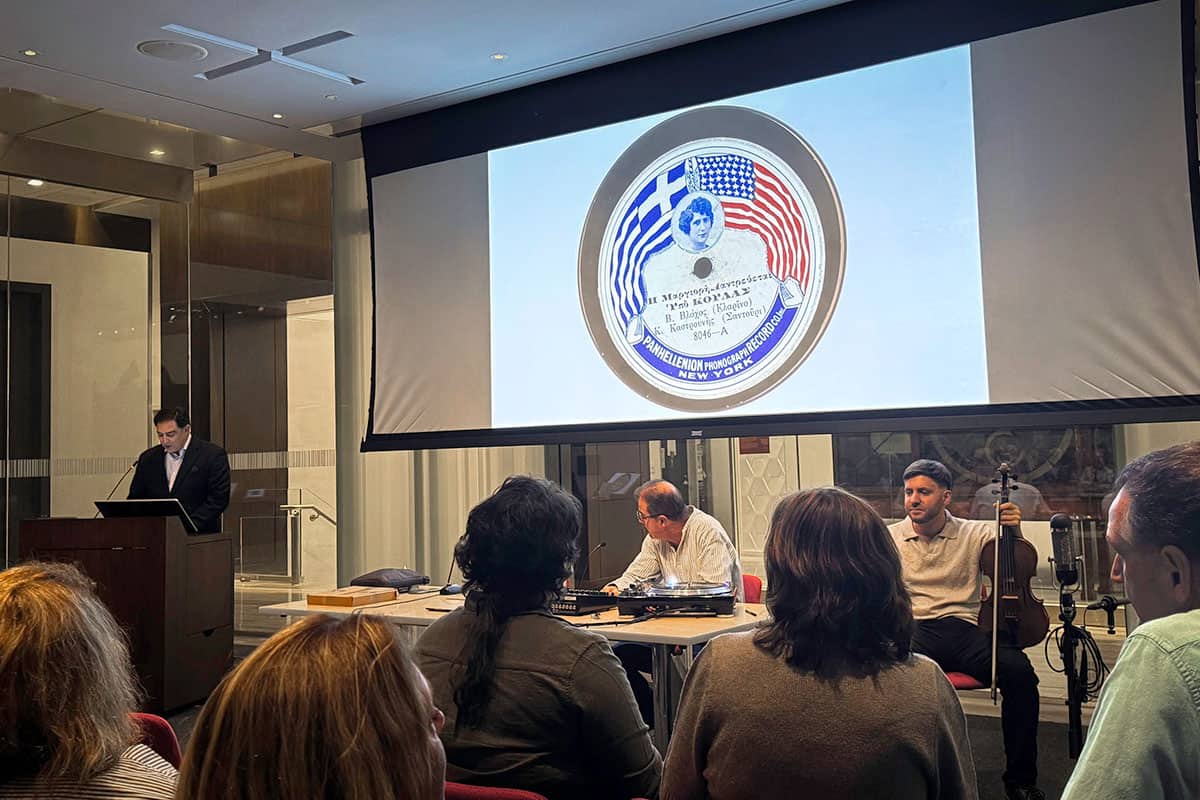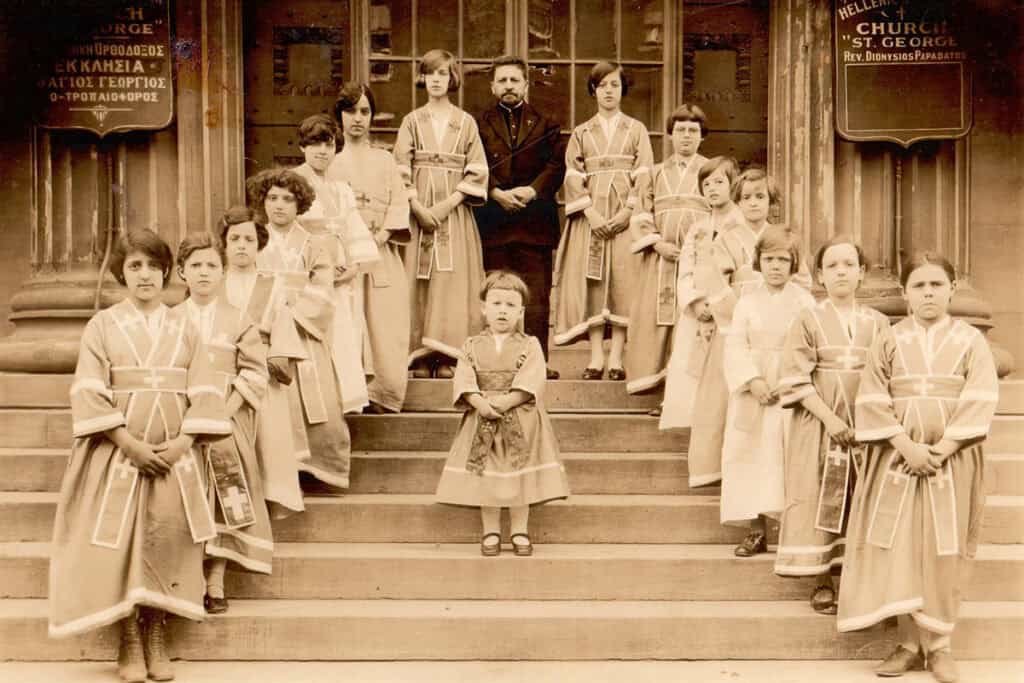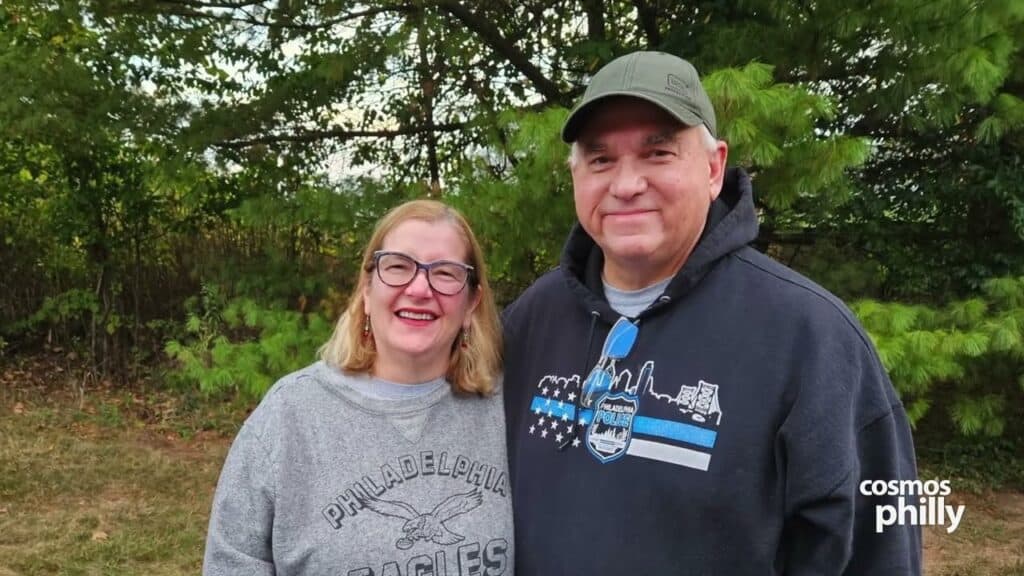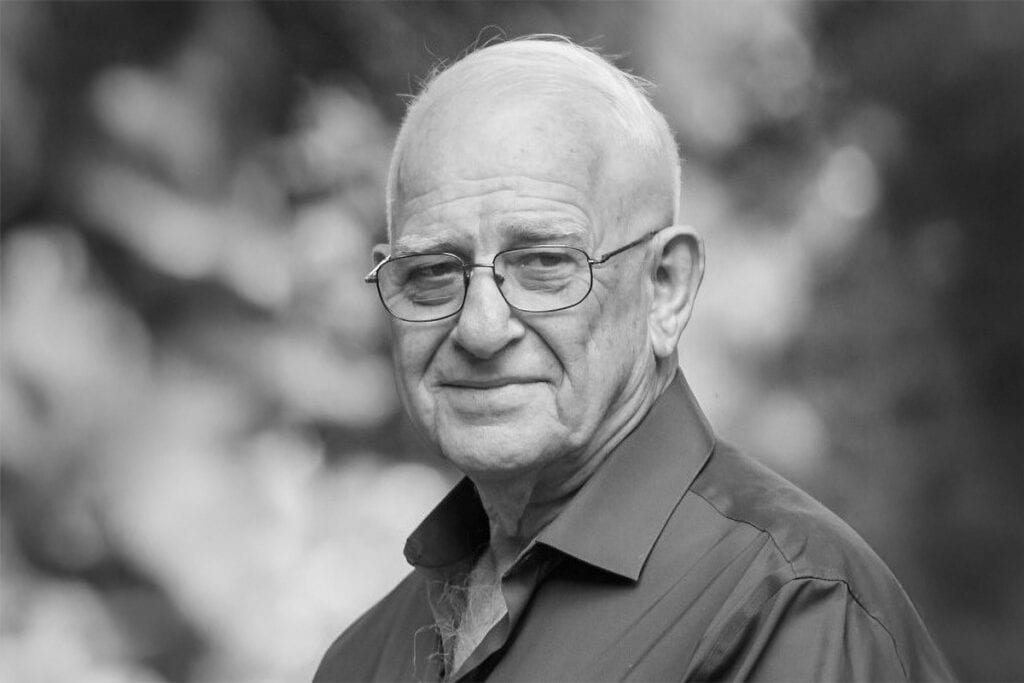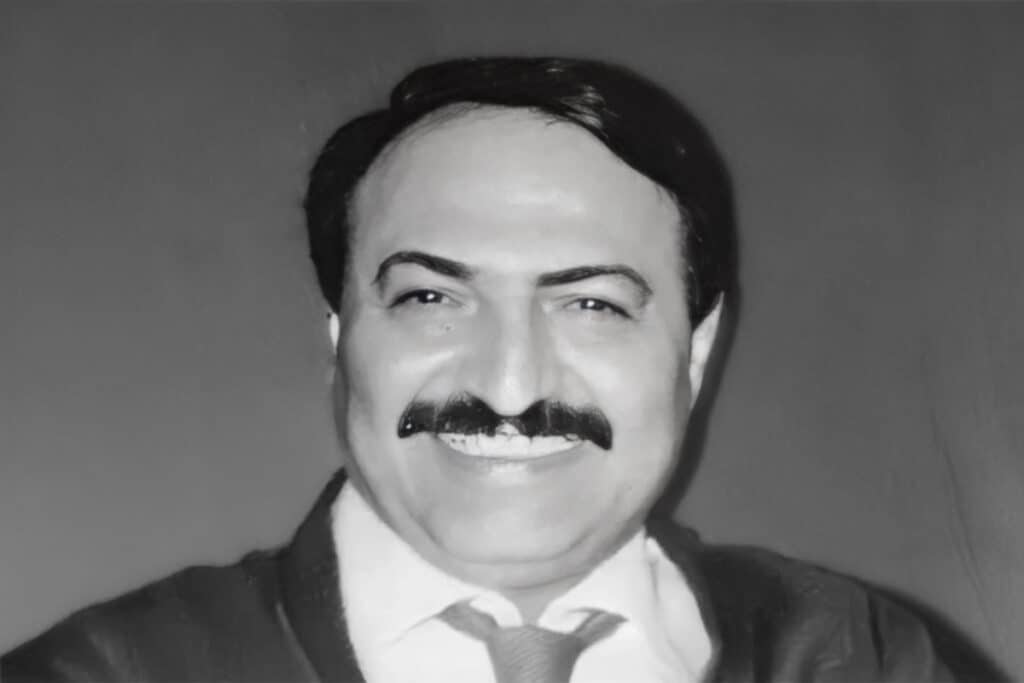At Penn Libraries, Grammy-winning ethnomusicologist Christopher C. King revealed how early Greek immigrants used American technology to preserve and reinvent their homeland’s music.
Most people assume Greek music was preserved in Greece. But as Christopher C. King explained Wednesday night at Penn Libraries, America, not Greece, was the true birthplace of recorded Greek folk music.
The October 8 event at the Class of 1978 Orrery Pavilion at Penn’s Kislak Center brought together the Hellenic University Club of Philadelphia, Stockton University’s Pappas Interdisciplinary Center for Hellenic Studies, and the Greek American Heritage Society of Philadelphia, with support from Penn Libraries’ Zilberman Family Center for Global Collections.
Among those in attendance were Dr. Elias Iliadis of the Greek American Heritage Society of Philadelphia and Dr. Tom Papademetriou of Stockton University’s Pappas Interdisciplinary Center for Hellenic Studies. The evening featured both historical 78 rpm recordings and live musical performances.
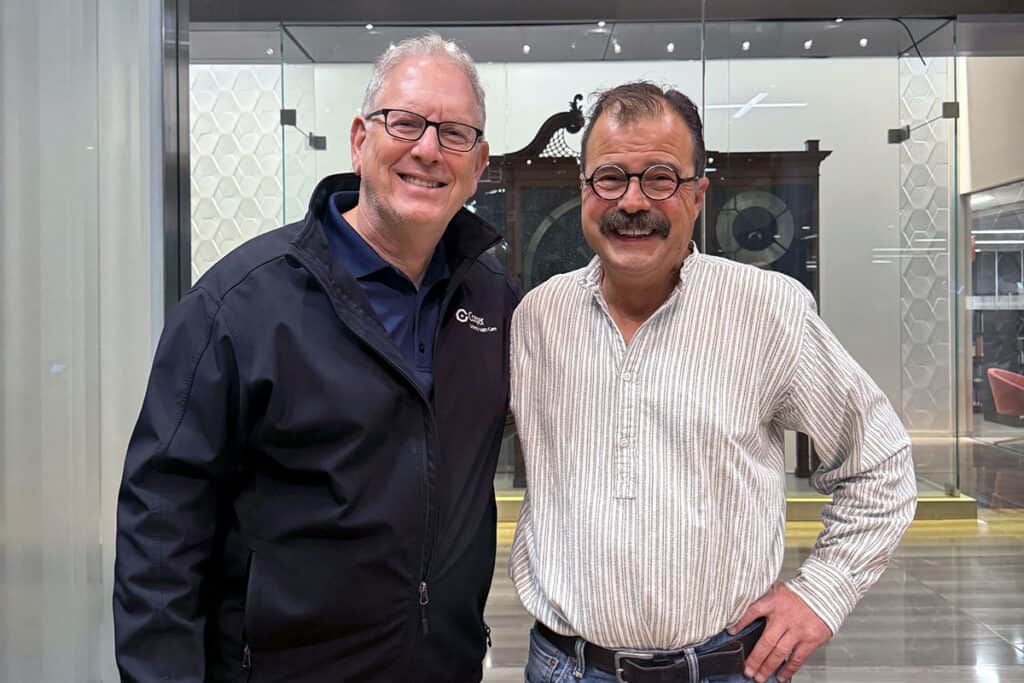
America Becomes the Archive
From 1910 to 1932, the overwhelming majority of Greek-language 78 rpm recordings were manufactured in the United States. By the mid-1920s, nearly one-sixth of all phonograph discs sold in America featured Greek or Asia Minor music.
These records weren’t niche products for small immigrant communities. They were commercial successes that reshaped the American recording industry and transformed how Greek music was preserved and shared.
King played rare recordings from his personal collection while a live musician accompanied the historical sounds on traditional instruments. Behind him, a Karteria record label appeared on screen, showing both Greek and American flags, visual evidence of how immigrants bridged two worlds.
The recordings weren’t just preservation. They were innovation. Greek immigrants from Smyrna, Epirus, the Aegean islands, and mainland Greece used American recording technology to capture regional traditions that might otherwise have disappeared.
Artists like Marika Papagika became stars, recording more than 230 songs between 1918 and 1929. Greek entrepreneurs built an entire infrastructure. Panhellenion Records, founded in 1919 by recording artist Kiria Koula, is widely recognized as almost certainly the first female-owned record label in America.
Greek immigrants opened studios, pressed records, and operated venues filled with the sounds of clarinets and bouzoukia, proving they weren’t just workers in someone else’s industry but innovators in their own right.
The Further the Flame, the Worse it Burns Me: Greek Folk Music in New York City, 1919-1928 by Marika Papagika
Philadelphia’s Greek Music Legacy
King’s story resonates deeply here in Philadelphia, where Greek music has flourished for more than a century.
“What Christopher King revealed about early Greek recordings in America directly connects to our own community’s musical heritage,” said Dr. Iliadis. “GAHSP has been documenting this history through projects like our Photo Tour 2018: A Musical Odyssey, which traced 100 years of Greek musicians and bands in the Delaware Valley. Working with our media partner Cosmos Philly, we’ve preserved these stories through a documentary on Greek music in Philadelphia, produced by filmmaker Eleftherios Kostans.”
The documentary captures the rich history of Greek music venues in the region, from early rebetika recordings at RCA Victor Studios in Camden, New Jersey (late 1920s to 1930s) to the bouzoukia and Greek nights that filled Philadelphia’s restaurants and clubs for generations. The film showcases more than thirty bands and musicians who kept Greek musical traditions alive in the Delaware Valley.
GAHSP also partnered on Kostans’ award-winning film In Support of Liberty: Philadelphia and the Greek War of Independence. “We hope to continue capturing and creating projects like this,” Dr. Iliadis added. “We invite the public to visit gahsp.org and join our organization to help preserve Greek American heritage.”
Expert Recognition
King has dedicated 25 years to preserving historical folk music from around the world, producing more than 350 CD collections and winning a 2002 Grammy Award for Best Historical Album for his work as Sound Engineer on Charley Patton: Screamin’ and Hollerin’ the Blues. His 2018 book Lament from Epirus brought international attention to the mirologi tradition of northwestern Greece.
In 2022, Greece awarded King honorary citizenship, the highest honor the country can bestow on a non-native. His Penn Libraries presentation also previewed the upcoming exhibition “The Greek-American Music Experience in the Early 20th Century” at the Gennadius Library of the American School of Classical Studies at Athens. Related materials from the Penn Libraries collection were displayed in the Lea Library before and after the presentation.
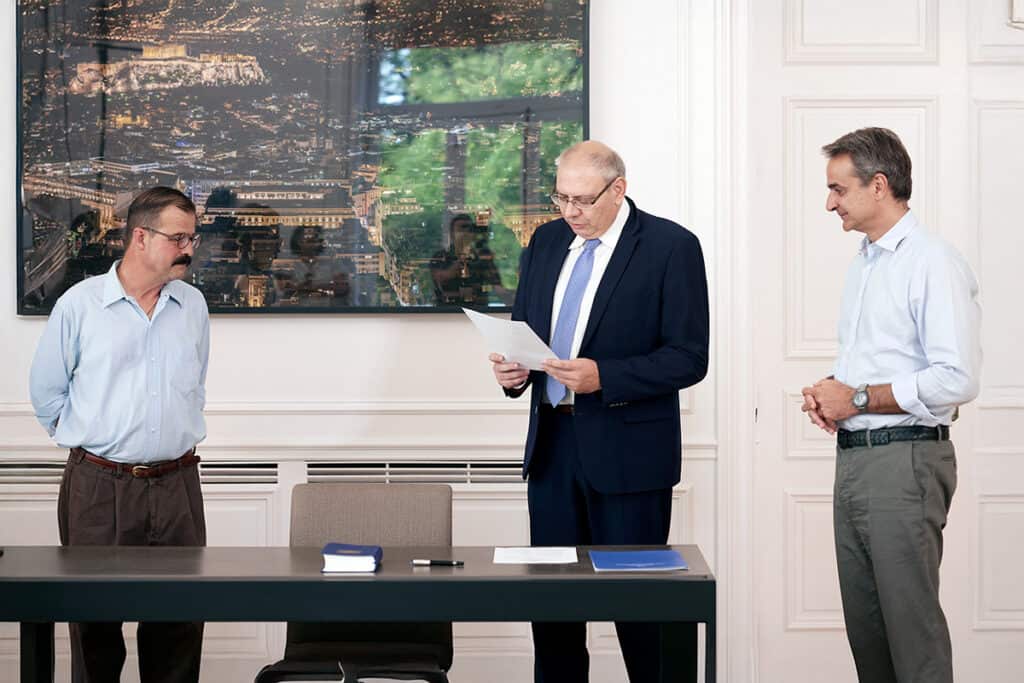
The evening revealed how Greek immigrants in early 20th-century America became unlikely stewards of their homeland’s musical heritage. They didn’t just preserve the past. They created a new chapter in Greek cultural history, one written in America but sung in Greek.
Featured image: Christopher C. King (center) presents rare 78 rpm Greek recordings at the Class of 1978 Orrery Pavilion, Penn’s Kislak Center, during the event The Greek-American Music Experience in the Early 20th Century on October 8, 2025.
Cosmos Philly is made possible through the support of sponsors and local partners. If you’d like to become a sponsor or promote your business to our community, get in touch.
